IVF Twins
Learning About The IVF Process And Twin Pregnancy From A Mother And M.D.
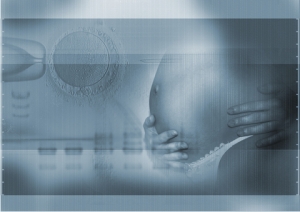
Foreward by ~ Kellie Asaro (site founder)
IVF twins are becoming commonplace among women undergoing infertility
treatments these days. Mother's expecting twins (and even those who
already have them) will often be asked by perfect strangers if their
particular twin pregnancy was due to infertility treatments or IVF (In
Vitro Fertilization)...as if it's anyone's business. And what does it
really matter anyway? Needless to say,
they will still be asked. How they answer however, will vary.
I think the unknown is always intriguing, hence the inevitable inquiries. What most people don't, and will likely never fully understand, is the amazing, stressful, chaotic, painful, surprising, depressing, confusing, inspirational, journey that women undergoing IVF treatments embark on....and I have only scratched the surface on the scope of emotions.
Luckily, there is a growing sisterhood of women willing to share their
own stories of IVF and twin pregnancy. I was happy to be able to
connect with one of them myself and get her take on the process.
She's a mother of twins, as well as an M.D., so her story includes much
of the "science" behind infertility treatments as well as her
refreshing, frank, sometimes humorous account. Please read her story
below...
IVF, or what it's REALLY like to not get pregnant in your
twenties, have hot flushes at twenty-nine, lose your mind at thirty and
have twins at thirty-one.
by geohde - 2009
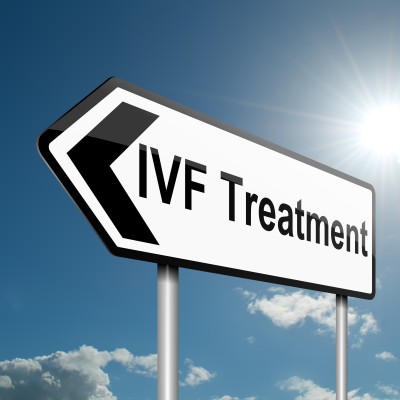
I'm not sure what I've got planned for thirty-two as yet.
I'm writing a little on the IVF process and my experiences, from astride
the stirrups (so to speak), instead of the clever version that comes
with the brochure in the average clinic showing Happy Couple + Infant on
the cover. I don't have any objection to the clever version, other than
that it all sounds so very neat and tidy and life is rarely so.
Presumably for some people it IS. But for many it's not simply a
few injections along the way, a nice sleep in an operating theater and
BAMMO, babies (sometimes several at once, even).
No, IVF is not quite like that.
It's also not ten inch needles and rivers of blood.
The truth is, as is often the case, somewhere in between. It's not That
Scary but it's also Not Especially Fun. Additionally, the main thing the
brochures completely neglect to mention is that very few couples wake
up one day with a spare ten thousand dollars burning a hole in their
pocket and think 'I know! Let's do IVF, just for kicks.'
It's totally normal to be fairly wrung out by a couple of years of
fertility treatment and persistent not getting OR not staying pregnant
before IVF looms on the horizon. It's normal to feel like you've hit the
end of the line. It's normal to be a bit scared about the whole thing,
and rather more anxious than a long-tailed cat in a rocking chair
factory.
Me? I was an utter irritating mess during my cycles. I distinctly
recall, with more than a little shame now that I have the clear vision
of hindsight that the retrospectoscope provides, lying on my couch all
weekend after my first transfer, obsessing that the ride home may have
dislodged a precious embryo, and mortally convinced my feverish feeling
meant I'd gone and caught raving endometritis from the transfer catheter
and the whole thing wouldn't work. Although it is always irritating to
hear ex-IVFers roll their eyes at this sort of worry when it's YOU in
the firing line, I'm going to go out on a limb and say that it IS
actually okay to carry on like normal after your transfer. Success rates
are not influenced by how horizontal you are in the two week wait.
Truly.
But I'm getting ahead of things. Who am I, anyway?
I'll share my experience, since like most people I find it very easy to
talk about myself. My story is not that uncommon, but note that the
reasons you may reach IVF personally may be quite different from my own.
The details of my cycles may be slightly different to yours, but the
general process is much the same and I suspect my emotions were fairly
typical.
How to NOT Get Pregnant in Your Twenties:
I have a fairly common condition called polycystic ovarian syndrome
which means that not only do I not ovulate on my own, but I get some
pretty impressive acne. For most of my adult life, to be honest, the bad
skin was my major focus and I spent a veritible fortune on potions and
the contraceptive pill to banish them. But then my husband and I decided
to have a baby.
We didn't suceed for the first year because it's hard to get pregnant
when you don't ovulate. The first infertility treatment I took was
Clomiphene. Clomiphene isn't so bad, since there's nothing sharp
involved and there's not that many side effects for most women. I had a
few hot flushes, but that's about it. I responded to the medication.
Caution! Science content:
Clomiphene/Clomid is a common orally administered ovulatory stimulant, other examples include Letrazole/Femara. These are first line drugs for many women with ovulatory disorders and work by either blocking estrogen receptors or decreasing the amount of estrogen. When given in the first part of the menstrual cycle, they trick the brain into pumping out more FSH (the egg stimulating and estrogen making hormone) because it's thinks there isn't enough estrogen around. More FSH in turn means the ovaries are more likely to grow a mature egg. Sometimes two. The rate of twinning in Clomiphene/Clomid users is something like 6-10%. The background rate, for comparison in Caucasians is about 1:80 pregnancies).
I'll be very honest, all of this attention on reproduction didn't do
much for our you-know-what life. 'Honey! I'm ovulating!' doesn't rank
all that highly in the wink-wink stakes. It's not an uncommon problem in
couples with infertility.
Although I was now ovulating, that was not enough on it's own. Further
testing revealed that like about a third of couples with infertility,
both of us had reasons to explain the lack of two pink lines. We had
male factor infertility in the kind of range for which ICSI is utilised.
ICSI requires IVF.
Caution! Science content:
ICSI is a treatment for more serious male factor infertility where either very low sperm count, sperm motility or sperm shape/morphology (and sometimes all three) are present in a man and normal fertilization of an egg unlikely or impossible, even in an IVF setting. It involves the manual selection of a single sperm by micropipette and injection directly into a harvested egg. Before ICSI there was very little treatment that could be offered to couples with severe male factor other than donor sperm or adoption. There is often still no explanation as to why some men have such infertility to this day, with current testing.
Some will have microdeletions of part of the Y chromosome or other genetic disorders but the majority are unexplained. Varicocoele surgery, vitamin supplements, loose shorts, avoiding hot baths have all been tried and perhaps make some difference in selected cases but by and large there is very little treatment other than ICSI for significant male factor. This doesn't mean that they're not worth trying and that men don't pop vitamins and get their partners pregnant, it just means that when studies have looked at large numbers of men who took various treatments and compared them with those who didn't, the pregnancy rates are about the same. Men with very low sperm counts do still occasionally father a spontaneous pregnancy, but the rate is much lower than in couples where the man has a normal sperm count. ICSI greatly increases those odds.
As we were preparing ourselves for the possibility of IVF, we got very
lucky and had a spontaneous pregnancy. Unfortunately, our baby had a
lethal birth defect and there was not going to be a happy ending. We had
to start again.
This meant that upon entering IVF, we had all the emotional baggage that
goes with infertility along with the misery that is unique to those who
have lost a pregnancy. There are many women who go through far worse
before IVF, but whatever your situation, pain is pain. I would never
advocate comparison or ranking struggles, although I will admit I often
used to peek around the waiting room of my clinic and wonder why the
very young-looking lady with the snazzy red shoes was there, or why
blue-shirt woman looked so sad that day. But I'm quite nosy. Most people
read the magazines, or at least pretend to read them.
How to Have Hot Flushes at Twenty-nine During IVF:
The IVF process, to begin at the beginning, usually involves some combination of the following elements:
Caution! Science content:
To understand the nuts and bolts of IVF, it helps to have a quick
refresher of the ideal menstrual cycle. Cycle day one is always
considered the first day of full flow. This is followed by several more
days of bleeding as the lining of the womb (endometrium) is shed in the
presence of low estrogen and progesterone levels.
The brain is able to sense the level of estrogen is low, and in response
a hormone called FSH (follicle stimulating hormone) is secreted,
causing several egg follicles in the ovaries to begin to grow and make
estrogen. As the estrogen rises, the FSH falls and the follicles compete
for the decreasing amount of FSH until only the strongest follicle is
left.
This dominant follicle is ovulated at mid-cycle when it produces so much
estrogen that it triggers the brain to send a large surge of LH
(lutenising hormone). Once the egg has been released, the follicle
becomes a corpus luteum and secretes progesterone (a hormone important
in preparing the endometrium for a baby and supporting pregnancy, hence
progesterone).
The brain continues to send LH signals to keep the corpus luteum
functioning until around 14 days post ovulation. If there is no
pregnancy, then at this point the LH is withdrawn, the corpus luteum
breaks down, estrogen and progesterone fall and the endometrium begins
to shed. If pregnancy DOES occur, the HCG from the early embryo acts to
keep the corpus luteum producing progesterone until the placenta is able
to take over.
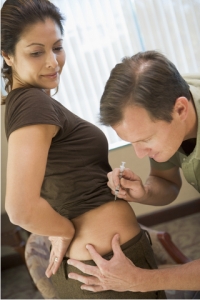
- Down-regulation
Down-regulation is the first phase of a standard IVF cycle. It involves, usually, several weeks on the oral contraceptive pill to both prevent ovulation and control timing of the cycle. In the last week to two weeks of the time on the pill a drug of a type known as GNRH agonists will also be taken. Common examples of these drugs are Lucrin/Lupron and Synarel. Lupron is an injectible medication whereas Synarel is sniffed and they have different dosing frequencies per day, but the net effect is the same. They both cause the brain to release all it's FSH and LH stores and keep them depleted so that premature ovulation does not occur and stimulation can be precisely controlled. Without down-regulation, as you can see from the previous paragraph, there would be a risk of premature LH surge and ovulation (a bad thing in IVF) since IVF creates more egg follicles than the normal number and consequently higher estrogen levels.
- Stimulation, a.k.a the dreaded needles.
They're really not so bad. Many are subcutaneous, especially with the more modern drugs and come in fancy injection pens. You'll be the life of the party, promise. In the stimulation phase, the Lupron or Synarel continues to be taken daily, in order to prevent premature ovulation. At the same time, artificial versions of FSH are injected in order to stimulate the ovaries to make more eggs than usual. This dose can be adjusted based upon the results of blood tests and ultrasound scans during this phase of treatment to make sure enough follicles are going to continue with IVF but not so many that the woman is at risk of a problem known as OHSS (ovarian hyperstimulation syndrome). The average duration of this phase is 10-14 days. At the end of the stimulation phase, ovulation is artificially triggered using an injection of HCG (this can substitute for the natural LH surge because HCG and LH have similar structures and the same actions on the ovary). Because the timing of the trigger before retrieval is critical so that A: mature eggs are harvested, but B: are not ovulated and lost, it is important to follow your clinic's instructions precisely. The standard timing is to give the shot around 36 hours before retrieval.
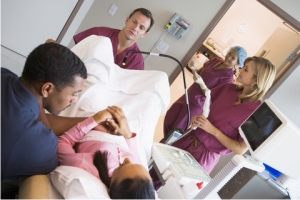
- Retrieval
This is the part of the process that involves a minor surgery, usually carried out under sedation. Using ultrasound guidance, a needle is passed through the walls of the vagina and into the adjacent ovary. Each follicle is aspirated, and the eggs are sorted out from the fluid by the embryologist. The whole process takes about half an hour. The eggs will then be mixed with the man's sperm, or injected into each egg with ICSI.
- Transfer
Whether you have a day 2, day 3 or day 5 transfer largely depends
on your country of residence, local protocols and is also influenced by
the number and quality of embryos you have. As a rough guide, embryos
should have about 4 cells on day two, 8 on day three and be a blastocyst
by day 5. Pregnancy rates are higher for day 5 embryos than day 2
embryos as they are more likely to be genetically normal.
The transfer process itself is much like a pap smear, with a very fine
catheter containing the embryo(s) threaded through the cervix and into
the uterus. The embryos cannot fall out after transfer as they are tiny
and settle into the endometrium.
- Luteal support
Since there has been a down-regulation phase, the body will (if left to it's own devices) fail to support any potential pregnancy because there is little or no LH to stimulate the ovaries to make progesterone. Therefore, progesterone is given after transfer in one of several forms (via pessary into the vagina or via injection into the muscles of the buttock) until a blood pregnancy test is carried out around two weeks after transfer.
- Blood pregnancy test.
Piece of cake if you've cheated and peed on a stick and got a positive result. Horrid if you know you're not pregnant.
(In an aside, there are other IVF protocols such as antagonist cycles
and flare cycles designed for poorer responders, I've not discussed
those here simply for the sake of clarity)
So, how does all of that feel?
Personally, I would say that down-regulation feels like an early taste
of menopause complete with hot flushes and horrid sinus headaches. The
stimulation phase is better as hormone levels improve and humanity is
restored. Every scan is a little scary because dosage is always a bit of
a guess, especially in the first cycle where there is no previous
response to compare with.
Our first cycle went well. We had great fertilization rates, thanks to
ICSI manually banging the sperm into their destination. We had lots of
good embryos.
We didn't get pregnant.
I bled before the beta.
How IVF Might Make You Lose Your Mind at Thirty:
So we tried again, using some of our frozen embryos.
Caution! Science content:
A FET (frozen cycle) is usually less complex than a fresh one. There are several ways to prepare the uterus for the thawed embryo(s), ranging from placing them back at the appropriate point in a woman's natural cycle, supporting a natural cycle with progesterone in the second half or taking over the natural cycle and giving the estrogen and progesterone to develop the uterine lining.
Because of my natural disinclination to ovulate, we opted for an
artificial cycle. Unfortunately I am one of a small number of women for
whom that doesn't work, and I started bleeding within a few days of
transfer (well before the embryos could have begun to implant) and did
so despite increasing doses of progesterone until we abandoned the
cycle.
Obviously, I didn't get pregnant that time either but it was by far the hardest emotionally.
It is one thing for IVF not to work, but go according to plan, that's
expected. We all know that success rates are far from 100%, even in the
best of circumstances. It is heartbreaking when the whole cycle goes
comprehensively pear shaped.
Finally, after nearly three years of trying to achieve a viable
pregnancy, I put on my best stirrup socks and we had one more go at a
frozen cycle with a change of protocol to include me ovulating. Then I
almost completely failed to do that critical part. I think I have the
record at my clinic for the longest frozen cycle, given I was nearly
cancelled three times and finally ovulated on cycle day
thirty-something. I cannot describe the tension at this point.
Nail-biting is too much of a cliche and not strong enough worded, unless
you're referring to perhaps an elephant's nails.
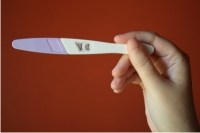
I got my transfer of two okay'ish embryos and we added a bunch of progesterone supplementation. I then cynically forgot about the whole thing, went to the pub, ate sushi and drank red wine in fits of misery, convinced that none of it mattered, anyway. I got my first positive pee-stick at only a week post transfer.
How to Have IVF Twins at 31:

My beta was very high.So was the second, and the third. By the fourth
beta I got enough of a hold on my fear to stop harassing the
phlebotomists to take my blood.
At the six week scan there were two heartbeats.
I spent the entire first trimester in terror that I would miscarry. I
yearned to have the reassurance of my head in the toilet, talking on the
porcelain phone but apparently I am immune to HCG. Despite conspicuous
absence of any symptom other than ravenous must-have-toast-in-bed-at-3am
hunger and truly painful fatigue, I stayed pregnant. The moral of the
story is that a lot of symptoms do not guarantee a healthy pregnancy and
an absence of them does not mean all is lost. If you're not vomiting,
be pleased.
At the twelve week scan there were two normal babies.
I started contracting at twenty weeks, but that (and the risks of multiple versus singleton pregnancy) truly is another story. I type this with twins complaining in the background that it's, most emphatically, no longer nap time.
Summary? If you're struggling with infertility or doing IVF, talk to
somebody. You are comprehensively not alone. There's a fantastic online
community out there who've all been where you are now.
On to the next step - See my article on Twin Pregnancy Complications

Recent Articles
-
Double Duty Log Book For Twins - An easy way to keep track
Apr 11, 24 06:18 PM
Our Double Duty Log Book for Twins will help you stay on schedule, keep track of feedings and more. Save your sanity and get it all done with a twin log sheet that really works! -
37 weeks+4days and feeling huge
Sep 14, 23 12:12 PM
I am expecting a boy and girl.❤️ My belly is massive,it’s 3 times bigger than my previous pregnancy.My bum has also gotten bigger(My hubby loves it)!I -
Foods Babies Should Avoid
Jan 12, 23 06:30 PM
Foods Babies Should Avoid is a part of our feeding twins guide





Comments or Questions?
Join the conversation. We love to hear from our readers!